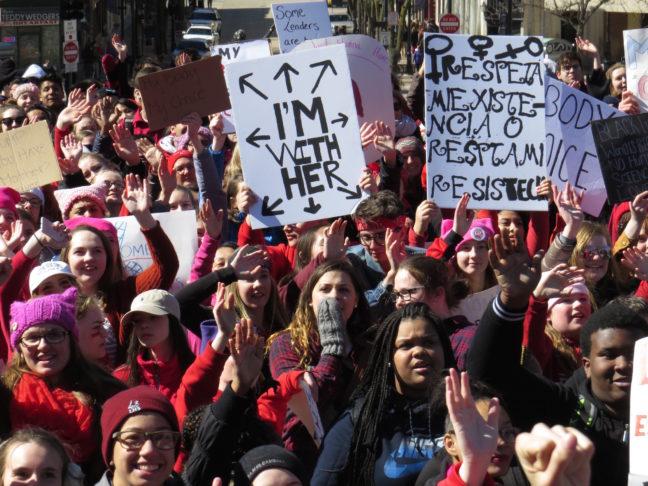In an era of rapid technological advancement, our society has highlighted the many perks of media — increased productivity, power to broadcast information in seconds and added opportunities to socialize. Simultaneously, society has failed to recognize the negative consequences of media, particularly for young girls in America.
It begins with the staggering discrepancies between the average American woman — 5-feet-4 and 140 pounds — and the average American model — 5-feet-11 and 117 pounds. The media portrays this unobtainable image of beauty, in turn, laying the ground work for big businesses to capitalize financially. As youth consume, on average, between 3,000 and 5,000 commercial media messages a day, we must address the power and influence of media on our youth in today’s world.
Not all advertising agencies or big businesses exploit this harmful approach, but I’m certain we have all witnessed or experienced this tactic in media targeting young girls. This advertising scheme is most profitable at the expense of our youth — financially and psychologically.
Here is a glimpse of the psychological impact harmful media has on young girls. Forty-two percent of first through third grade girls want to be “thinner.” Eighty-one percent of 10-year-old girls are afraid of being fat. More than half of teenage girls use unhealthy weight control behaviors such as skipping meals, fasting, smoking cigarettes, vomiting or taking laxatives. Eighty percent of women say they are dissatisfied with their shape and appearance and the suicide rate for females ages 10 to 14 increased 200 percent between 1994 and 2014.
After uncovering this and its implications, I interviewed my friend and colleague, Kelly Parks Snider, who has 15 plus years of experience in this issue. Snider is the founder and director of Project Girl, a nonprofit organization combining art, media literacy and youth-led activism to enable girls to become better informed critical consumers of mass media advertising and entertainment.
In our interview, she highlighted a few of the keys to facilitating media literacy for young girls.
“We have to teach young girls about the motives behind media — once they understand the lies and the misrepresentations, they can deconstruct media’s manipulation,” Snider said.
Snider uses art to educate and create awareness in young girls to transform how they see the world. It becomes a reflection of who they are and what they value, allowing them to see the opposing values that media and advertisers behold. As a result, they become the teachers and the sources of knowledge to make well-informed decisions about the media they consume.
Media’s impact on young girls is not an issue we can overlook. We must recognize that media and big businesses will continue to advertise to America’s youth, whether we like it or not.
Snider shared, “In 1980, Congress passed the FTC Improvement Act mandating that the Federal Trade Commission would no longer have any authority whatsoever to regulate advertising and marketing to children.”
Consequently, it becomes our responsibility to prepare young girls for this age of media and advertising. Snider, as a pioneer of this mission, has paved the way for media literacy facilitation among young girls. The next step is to make this literacy a part of every young girl’s and boy’s development, shifting the power and understanding into their hands to make informed decisions.
Let us cherish the benefits of media and technology, nevertheless, recognizing and addressing its negative impacts, especially on young girls. Let us remind them it is OK not to be 5-feet-4 and 117 pounds, that they are beautiful the way they are and that media is going to tell them otherwise.
If you are interested in connecting with or learning more about Kelly Parks Snider and her work, visit Project Girl or reach out to me at [email protected].
Gunnar Malensek ([email protected]) is a senior majoring in community and nonprofit leadership.




















